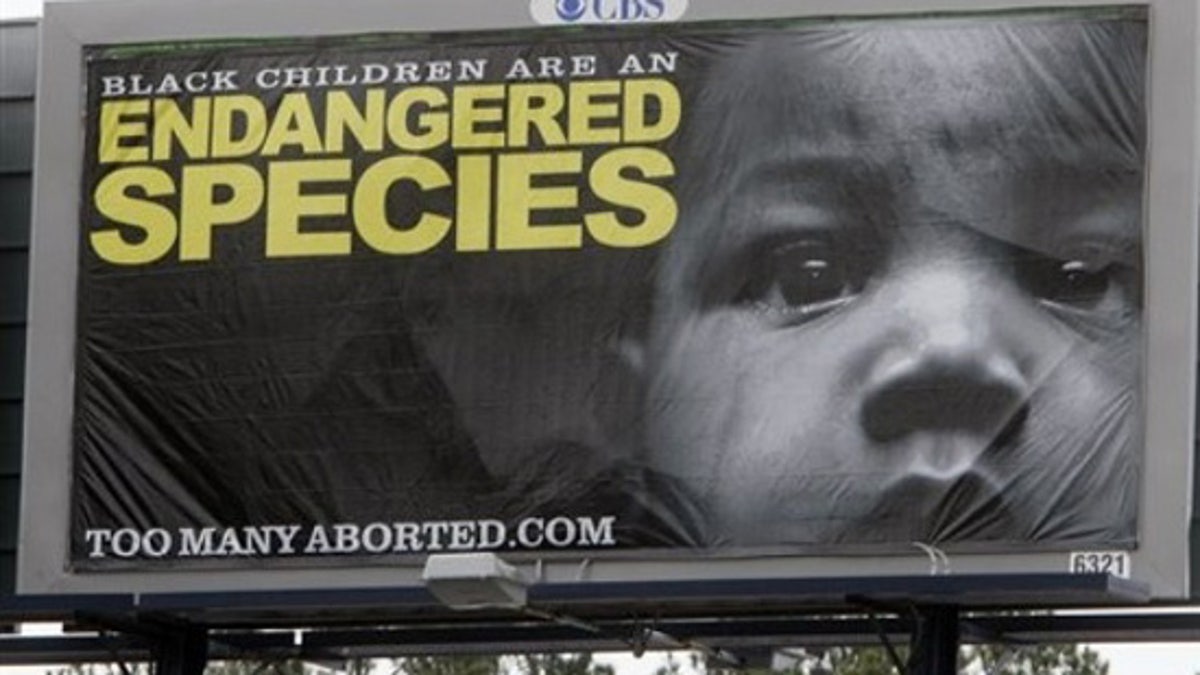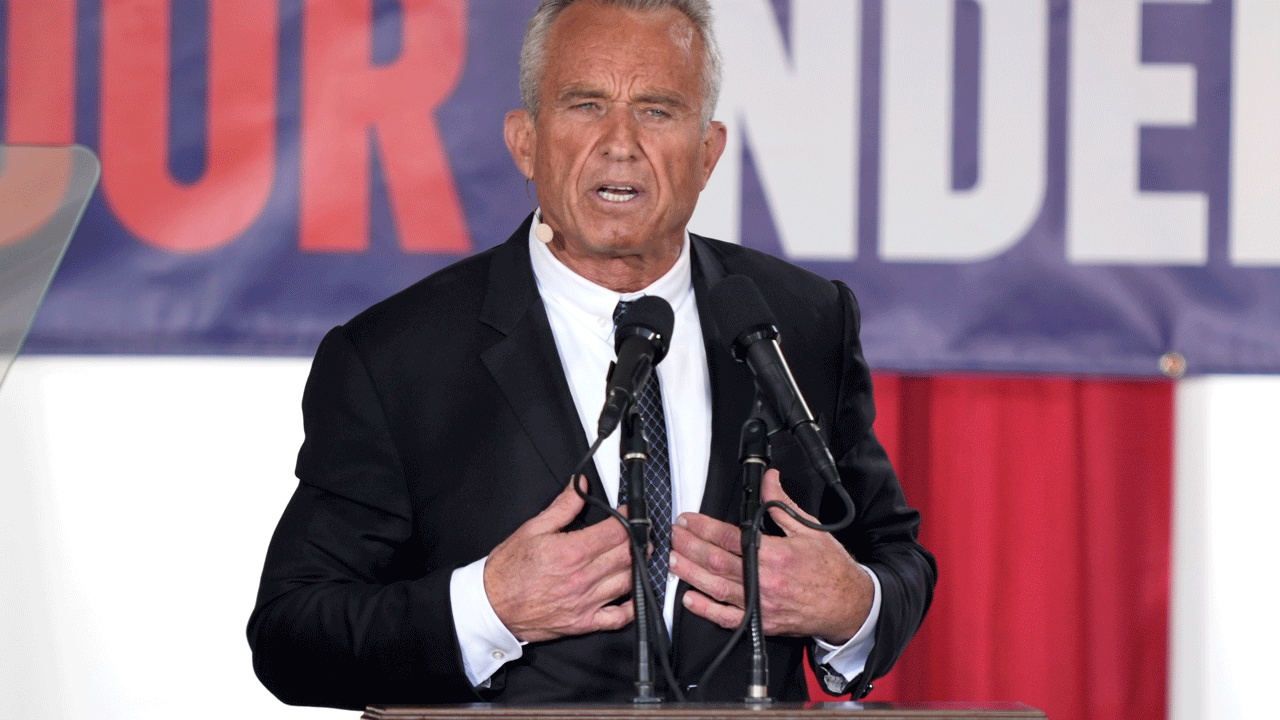
In this photo made Thursday, Feb. 11, 2010, an anti-abortion billboard is shown in Atlanta. The eyebrow-raising ads featuring a young black child are an effort by the anti-abortion movement to use race to rally support within the black community. (AP)
Are health care providers using abortion to curb the growth of the U.S. black population?
That question will be at heart of a debate among Georgia lawmakers, who are poised to take up a controversial bill that would outlaw abortions prompted by the baby's race or gender.
The issue that has inspired a billboard campaign claiming a racial conspiracy is behind the termination of pregnancies. The billboards have drawn national attention for claiming black babies are an "endangered species."
As for the bill, it barely made it out of committee this week, in a 7-6 vote and it still needs to clear the Rules Committee before heading to the full House, but proponents are emboldened by the recent committee vote.
"I'm excited," said the author of the bill, Republican state Rep. Barry Loudermilk. "I think this is one of the most difficult hurdles to face."
But the bill is far from the finish line, and opponents are beginning to line up.
"We're going to go all out to stop the legislation," said Loretta Ross, national coordinator of SisterSong, an abortion-rights group. The bill would have a "chilling effect" on "communities of color that are already suffering from a lack of health providers," she said, and would "drive up malpractice costs."
Ross said she will make her case to members of the Rules Committee and believes the bill will be sent back to Judiciary Committee because of constitutional concerns and lack of statistics illustrating the problem.
"Also, let's be clear," she said. "The entire agenda underlining this is not about saving black babies. It's hard for me to believe people not working with us to save the babies here want to save unborn babies."
Ross said supporters want to enact an abortion ban that can be enacted in other states.
"What it's going to do is tie up a lot of time and resources over a red herring struggle," she said.
Loudermilk told FoxNews.com he believes the bill has a good chance of passing both chambers.
"I think the majority of the members of the House are pro-life, as well as the state Senate," he said. "We're just going to have to educate them on what's in this bill."
If the bill passes, providers cannot solicit, perform or accept funding for abortions they know are prompted by the baby's race or gender. Providers who are found guilty each would face up to 10 years in prison and a fine of up to $25,000. Pregnant women would not be held liable.
Loudermilk, who acknowledged that enforcement will be difficult, said the bill applies the same standards used for outlawing discrimination in workplace and in schools.
Catherine Davis, director of minority outreach for Georgia Right to Life, the group behind the billboard campaign, told FoxNews.com that she supports the legislation that she says will address an issue that has "such a disproportionate impact on the black community rather than every other community in Georgia, as well as the nation."
Davis noted that in 2008, blacks made up 30 percent of the population in Georgia but more than 57 percent of the abortions.
"Those numbers are so horrific," she said. "There has to be something else contributing to this number."
Davis said one study shows there is a direct correlation between the location of most abortion clinics in urban areas and the number of abortions by black women. In Georgia, she said, 100 percent of the clinics are in urban areas. Nationwide, it's 75 percent, she said.
"I believe it's deliberate," she said, citing Oregon as one example where most abortion clinics are located in black neighborhoods despite an overwhelming white population in the state.
But Ross dismissed that out of hand.
"I can't find facts to fit their conspiracy theory," she said, arguing that abortion clinics are located where there are clients.
"If you own a grocery store, would you put it 20 miles from where it's needed?" she said. "So that logic that it's in urban areas because it's black and not where clients are doesn't make business sense. It's an irrational argument."
Ross agrees that abortion is having a disproportionate impact on the black community.
"Because of health disparities, less access to birth control, less access to sex education," she said. "We have a higher rate of childhood sexual abuse. … And so when you have those types of disparities, you'll have unintended consequences.
"I tend to resent the manipulation of data that claims abortion is the problem when we're not doing everything we can to make sure health disparities are addressed."
Davis said she is "flabbergasted" by the intensity of the opposition to the bill.
"You can still get an abortion," she said. "Is there all this hoopla because these doctors are doing what I suspect they're doing?" she said. "Otherwise, why are they up in arms about our campaign?"
Davis, who is black, said she just wants to see an end to what she called a racially motivated practice.
"If they will stop targeting my people, I will fade softly into the background," she said.




